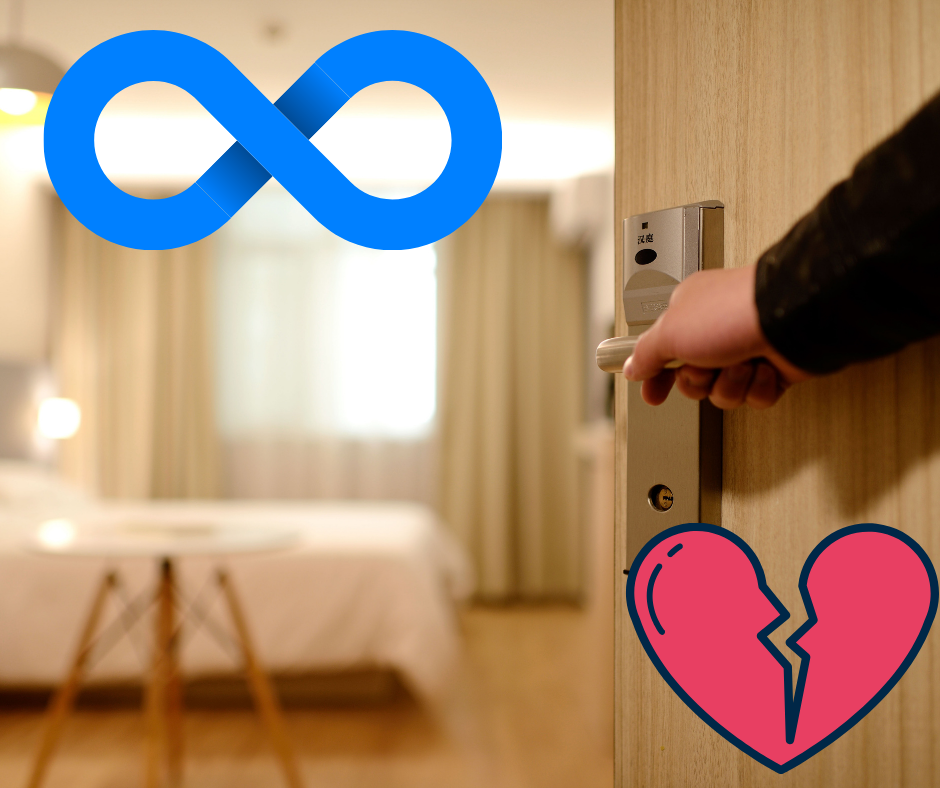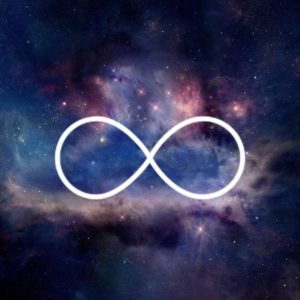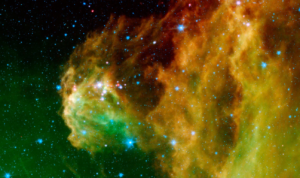Audio accessibility for this blog post is powered by Microsoft Text-to-Speech technology. These recordings are provided for personal, non-commercial educational use only.
This article was formed as a result of me typing out my thoughts. Sometimes typing them out helps me organize my thinking. And sometimes I like to publish these if I think it’ll help get others thinking as well. In the first section, I think about an article written by Landon Hedrick in the book “The Kalam Cosmological Argument, Volume 1: Philosophical Arguments for the Finitude of the Past (Bloomsbury Studies in Philosophy of Religion)” which is a collection of essays by atheist and theist philosophers on The Kalam Cosmological Argument.
The first section is what I thought of Kyle Hedrick’s criticism prior to reading Andrew Loke’s response.
—–
SECTION 1:
Landon Hedrick argued that the argument against the existence of actual infinites fails as support for the second premise of the Kalam. Now, he rejects BOTH premises of the argument, but I found his denial of the argument that an actually infinite number of things cannot exist to be question begging.
The argument as Craig usually presents it goes something like
(1) An actually infinite number of things cannot exist.
(2) A beginningless series of events in time entails an actually infinite number of things.
(3) Therefore, a beginningless series of events in time cannot exist.
The conclusion of this argument is the same as premise 2 of the Kalam Cosmological Argument that “The Universe Began To Exist”. It’s just stated differently. But the conclusion that “A Beginningless universe does not/cannot exist” is logically equivolent to saying “The universe began to exist.” The response he gave to premise 1 was basically to point out that other philosophers believe in things that could serve as counter-examples to 1, and (1) the view that there is an infinite number of abstract objects – e.g. numbers, propositions, properties, sets, possible worlds, etc.; (2) David Lewis’s modal realism view of possible worlds, where there is an infinite number of concrete worlds; (3) the view that space is continuous, made up of an infinite number of points.
I think Landon Hedrick’s criticism of 1 is really weak. I think he shifts the burden of proof by demanding the proponent of this argument to disprove these alleged counter-examples. However, shouldn’t it be up to the detractor of this argument to prove that their counter-examples really exist? Assertions are easily made. Backing up those assertions is a more difficult task. I can claim that there’s an actually infinite number of unicorns on a planet at the other end of the universe, 90 billion lightyears away from us. But unless I provide some good evidence for these infinite number of unicorns, the reasonable person would clearly see that this is no defeater of premise 1 of the Actual-Infinites-Cannot-Exist argument. Likewise, if we have no reason to accept modal realism, that there are an infinite number of abstract objects, or that space is divided into infinite points, then 1 stands.
Moreover, why can’t the support for premise 1 via thought experiments like Hilbert’s Hotel be within itself a positive reason to think these counter arguments don’t exist. It seems to me Landon Hedrick begs the question against the first premise.
What troubles me is Hedrick’s response regarding arguments for 2. Here, Kyle Hedrick argues that if one is an A-theorist or presentist then past events don’t really exist. Therefore, even if one agrees that an actually infinite number of things cannot exist (and I do), that needn’t translate over into a denial of an eternal universe. Why? Because again, past events aren’t real. Neither are future events. Only the present is real. Hendrick even quotes Dr. William Lane Craig saying just this!
I think Dr. Craig is right to say that there is a sense in which the past has an ontological status that is not true of future events. Past events, although they no longer exist, they DID exist. They USED TO exist. They, at one point, were indeed real. However, they don’t exist anymore. This is in contrast to future events which have not previously existed and do not presently exist.
I find the argument against a beginning less past that says you can’t form an actual infinite by successive addition compelling. And so far, throughout this collection of essays, not a single atheist author has given me good reason to think this argument doesn’t go through. However, the argument on the basis that an actual infinite entails absurdities is no longer persuasive to me, for I just cannot find a reason to support premise 2.
There is a revised syllogism that Hendrick suggests one might try to formulate in order to save the argument. It goes like this
(D1) There cannot be a world in which an actually infinite number of things has been actualized.
(D2) If the actual world is one in which the universe is past-eternal, then there is a world in which an actually infinite number of things has been actualized.
(D3) Therefore, the actual world cannot be one in which the universe is past-eternal.
However, I don’t know how to support the premises of this argument without appeal to the successive addition argument. “What’s the problem with that?” you may wonder. The problem with this is that the argument that “An Actual Infinite Number Of Things Cannot Exist” and “You Cannot Form An Actually Infinite Number Of Things By Successive Addition” are supposed to be two separate arguments for the beginning of the universe. If you have to use the Successive Addition argument in order to support what Landon Hedrick calls the “Hilbert’s Hotel Argument” (HHA), then what is the point of using HHA? Why not just stick with the successive addition argument?
It kind of stinks to be doubting the validity of this argument. I like having a plethora of arguments to support my conclusion, and to give up The Hilbert’s Hotel Argument would reduce the number of arguments for a cosmic beginning in my roster to 3 instead of two (the other two being the Successive Addition Argument, and the two scientific arguments from Big Bang Cosmology and The Second Law Of Thermodynamics). But, at least I still have these 3.
In a way, I guess you could say I’m back to where I was when I first started studying Christian Apologetics and The Kalam. It took me a while to embrace the HHA because I didn’t really feel the persuasive force of the argument. I couldn’t really articulate why, but I always found the argument that the present couldn’t arrive if we had to have endured an infinite number of past events more compelling. But eventually I realized that even if an argument doesn’t FEEL persuasive, as long as the conclusion follows from the premises and the premises are backed up by good arguments, you should accept the conclusion. And prior to the time of this writing, I didn’t really find anything I could pinpoint was wrong with this argument.
————————
SECTION 2
Andrew Loke had an essay immediately following Hedrick’s in which he provided a defense of the Modified HHA provided by Hedrick. Hedrick provided the syllogism, but he did not believe that there was any way to defend the premises. I saw a way to defend the premises, but not without relying on the second philosophical argument that “the universe began to exist”.
Taking the modified HHA, Andrew Loke runs with it. I think Loke may agree that the original way Craig defended the absurdity of a beginningless past via illustrations like Hilbert’s Hotel aren’t successful. He never says this, but this an inference of mine based on the fact that rather than defend the original formulation, he accepts the modified HHA that Hendrick offered and basically says “Ok. Thank you for the new syllogism. Now let me defend the premises for ya.”
Again, the modified HHA goes
(D1) There cannot be a world in which an actually infinite number of things has been actualized.
(D2) If the actual world is one in which the universe is past-eternal, then there is a world in which an actually infinite number of things has been actualized.
(D3) Therefore, the actual world cannot be one in which the universe is past-eternal.
In support of D1, Loke writes “Suppose this is how Hilbert’s Hotel is constructed: there exists a ‘hotel room builder’ who has been building hotel rooms at regular time intervals as long as time exists. Suppose there also exists a ‘customer generator’ which has been generating customers who checked in the hotel at regular time intervals as long as time exists. Suppose that the hotel rooms and the customers continue existing after they have been built and generated respectively. Now if the actual world is one in which the universe is past-eternal, then there would have been an actual infinite number of time intervals, and an actual infinite number of hotel rooms and customers occupying the rooms. In other words, if the actual world were one in which the universe is past-eternal, then there would be a world in which an actually infinite number of things have been actualized (premise D2). The absurd situation which Craig describes would then happen if, for example, ‘A new customer comes to the hotel asking for a place to stay when every room is already occupied. In such a hotel, we merely need to shift everybody down a room (so the person in room 1 moves to room 2, and the person in room 2 moves to room 3, etc.). Now room 1 is available for the new customer. This means that, even though every room in the hotel is full, new guests can always be accommodated . . . This, Craig says, is absurd.’ In the context of the modified HHA, this absurdity would apply to the premise that ‘there cannot be a world in which an actually infinite number of things have been actualized’ (D1).”1
Loke then points out that In his article, Hedrick discusses the objection that HHA is not analogous to an actual infinite number of past intervals of time for the following three reasons:
(1) ‘We’re talking about different categories altogether when we use examples about hotel rooms and other physical objects and then apply that reasoning to intervals of time’
(2) Unlike customers in hotel rooms, past events cannot be shuffled around
(3) Unlike customers and hotels, past events do not presently exist on the presentist ontology.2
But then he said that the modified HHA is not vulnerable to this objection because “It is obvious that in the modified scenario, if the actual world is one in which the univese is past-eternal, the absurdity will persist, but if the actual world is one in which the universe is not past-eternal, then no actual infinite number of hotel rooms and customers would have been built and generated and there would be no absurdity.”3
It at least seems to me like Loke has successfully defended both premises of this modified argument without having to resort to the second philosophical argument in the case for the Kalam (i.e the argument that the present couldn’t have arrived if we had to endure through an infinite number of past events to get here).
Loke also pointed out the same problems with Hedrick’s response to the impossibility of an actually infinite number of things existing as I did. He pointed out that it shifts the burden of proof and that merely asserted counter-examples don’t serve as real counter-examples. Loke wrote that “Craig does not bear the burden of proof to show that all of these views are not possible; he only needs to show that there is no adequate reason to think that any of these views is metaphysically possible and relevant, hence no adequate reason to regard any of this as a genuine counterexample to his claim, which he justifies with HHA.”
Conclusion
Now, with all of this said, what does this say about any future defense of the Kalam Cosmological Argument I may give? Well, unless Kevin Harris and William Lane Craig discuss this on The Reasonable Faith Podcast and convince me that the original way Dr. Craig gave the argument succeeds, I’ll either be stuck with 3 arguments for the Kalam’s second premise, or the 4 arguments; the 3 I’ve always given, plus Loke’s modified HHA.
I still need time to intellectually digest all of this. Maybe if only the modified HHA succeeds, then that it what I will use in future editions of my book The Case For The One True God: A Scientific, Philosophical, and Historical Arguments For The God Of Christianity, and perhaps I’ll do a Cerebral Faith Live episode defending the Kalam with this new “Lokian” version of the Hilbert’s Hotel Argument as part of my case? Maybe a pinned comment in my first video on the Kalam disclaiming that I no longer find that first philosophical argument successful as presented? Maybe Dr. Craig will see this and interact with it as he did when I criticized his criticisms of John Walton’s “The Lost World Of Genesis One” ?
One thing’s for sure: I LOVE thinking! I love critically evaluating things, and I love ditching bad arguments or having to modify arguments to make them stronger.
Speaking of Andrew Loke, he wrote a whole book on cosmological arguments that a friend of mine got me for my birthday. I plan on reading it as soon as I’m done with these two Kalam essay collections edited by William Lane Craig and Paul Copan. I wonder if this modified HHA is talked about in that book? We shall see. The book is called “God and Ultimate Origins: A Novel Cosmological Argument”. Supposedly, it’s supposed to be a hybrid of the Kalam and Thomistic versions of the cosmological arguments.
——————————————–
NOTES
1: The Kalam Cosmological Argument, Volume 1: Philosophical Arguments for the Finitude of the Past (Bloomsbury Studies in Philosophy of Religion) (p. 203). Bloomsbury Publishing. Kindle Edition.
2: The Kalam Cosmological Argument, Volume 1: Philosophical Arguments for the Finitude of the Past (Bloomsbury Studies in Philosophy of Religion) (pp. 203-204). Bloomsbury Publishing. Kindle Edition.
3: ibid.
Share this:
- Share on Facebook (Opens in new window) Facebook
- Share on X (Opens in new window) X
- Print (Opens in new window) Print
- Email a link to a friend (Opens in new window) Email
- Share on Pinterest (Opens in new window) Pinterest
- Share on Reddit (Opens in new window) Reddit
- Share on LinkedIn (Opens in new window) LinkedIn
- Share on Tumblr (Opens in new window) Tumblr
Discover more from Cerebral Faith
Subscribe to get the latest posts sent to your email.




